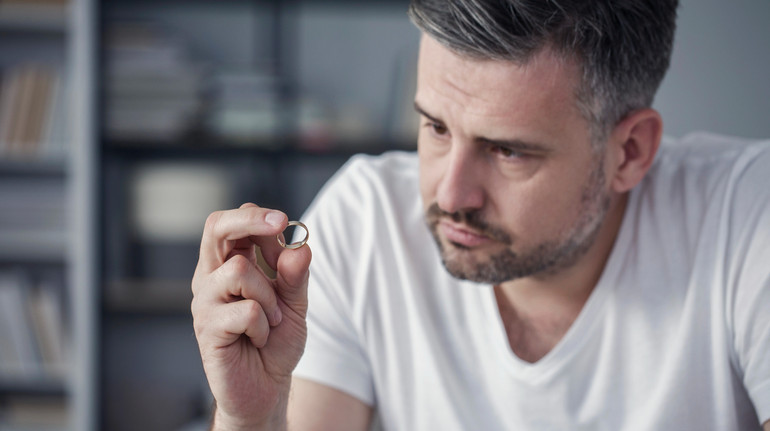She asked doctors for help for 15 years: Now she has been diagnosed

For Emily, the disease has been extremely disabling. She has had symptoms such as extreme bloating, severely painful menstruation, pelvic pain, abdominal pain, low back pain, pain between menstruation, ovulation pain, severe bleeding, pain in toilet visits, fatigue, nausea and chest pain. And the symptoms have only gotten worse over the years.
Throughout the teens, she described the symptoms of one doctor after another, but was met with the same answers that many women unfortunately know too well: ‘It’s mentally’, ‘it’s perfectly normal’, ‘it’s just anxiety’ or ‘Are you sure you’re not pregnant?’.
During every doctor’s visit, whether at her own doctor, at the emergency room or in the hospital, she was asked to take a pregnancy test. No one listened. Often, the doctors’ first thought was just: ‘You have to be pregnant’.
She has been in the hospital more times than she can count – maybe up to 100 times over the years, writes the US media Newsweek. When she was finally diagnosed, the disease was advanced to stage 4, which means it had spread everywhere.
The first symptoms as a 12-year-old were very painful menstruation and severe bleeding. But all her life she had been told that ‘menstruation hurts – it’s normal’.
As a teenager, she mentioned these symptoms to a gynecologist, but simply got the answer: ‘It’s perfectly normal’. As a 16-year-old, she was put on estrogen-based birth control pills. What she did not know at the time was that estrogen can actually aggravate endometriosis, as the disease itself produces estrogen and further supply can be harmful.
Unfortunately, that was exactly what happened. Within a few months, the symptoms became much worse. When she reported this to the gynecologist, the answer simply sounded that it ‘sometimes takes some time before the body gets used to the birth control pills’.
She continued to take them for several years, while the symptoms only got worse – and she was constantly told it was normal. At the age of 27, she has had collapsed lungs due to endometriosis in the lungs and has lost parts of the intestines.
Not only that, six organs have been removed due to bleeding caused by the disease: As a 26-year-old, she had the gallbladder removed and part of the bile duct. As a 27-year-old, she had the uterus, the cervix, both fallopian tubes and parts of the intestines.
The disease has penetrated the muscles and nerves, which has caused the brain to no longer control them properly. It has also further attacked bladder and intestines, and there is a risk that she will lose both. The endometriosis has been almost in all organs and is in the process of destroying the body from the inside.
As a child, she dreamed of many things. She dreamed of becoming everything from astronaut and princess to firefighter, but her biggest dream was always to become a mother.
She had longed to have her own children as long as she could remember. Careers and other dreams were also found, but the desire for children filled the most. Until the operation in August 2024 she worked in the car industry, but since then she has been incapacitated.
Over the years, endometriosis has taken everything from her: the ability to have children, freedom, independence and a life without pain. Still, she often hears people say that ‘endometriosis is just a bad menstruation’.
But that’s so much more than that. Endometriosis can destroy organs, invade the brain and lead to life -long injuries.
For her, it could all have ended differently. If she had been heard earlier, the disease might have been discovered in a less advanced stage. Maybe she had still had her organs. Maybe she could have had children. Maybe the disease had not spread.
She believes that the quality of life could have been significantly better. Instead, she pays the price today for a mistake that wasn’t hers. She chose to start the Tiktok profile @chr0nically.ill, where she now documents her life with endometriosis. The purpose has always been to show others that they are not alone.
She talks openly about the harsh sides of the disease and has shared the worst experiences because there is always someone who needs to hear that they are not alone.
Since then, many women have contacted her to afford how they can fight for themselves in meeting with health care. Several have written that her content helped them through difficult periods. It has been overwhelmingly positive, and that is precisely what has been the goal.
« If I can just help one person, then it’s enough for me, » she said.
Her best advice for others is to stand firm to doctors. If a doctor refuses to do examinations, then one should say, ‘I would like it to be noted in my journal that you have refused to examine for these symptoms’.
Often it causes the doctor to order tests, as inaction can later lead to a responsibility. She also calls for you to believe in herself. You know your own body better than anyone else. Another advice is to take a support person to consultations – one who can confirm that there are teams in the allegations.
‘Yes, I have seen her in pain’ or ‘Yes, I have experienced her symptoms’ can make a big difference if they come from someone who is close to you.
She wants to continue to raise awareness of endometriosis in every conceivable way. Many have heard of the disease, but do not know how devastating it can be. Her future is therefore uncertain.
Medically, she is currently receiving infusions directly in the bladder twice a week. In addition, she has three planned operations to treat the nerves affected by endometriosis. She no longer tries to plan what her life should look like – simply not to be disappointed.
She still hopes that one day she can adopt children and have a family. She has also considered taking an education as a nurse.
But right now the goal is clear: To spread as much information about endometriosis as possible. It is her most important mission – and she hopes to become a voice that can speak honestly and openly about the reality of the disease.








